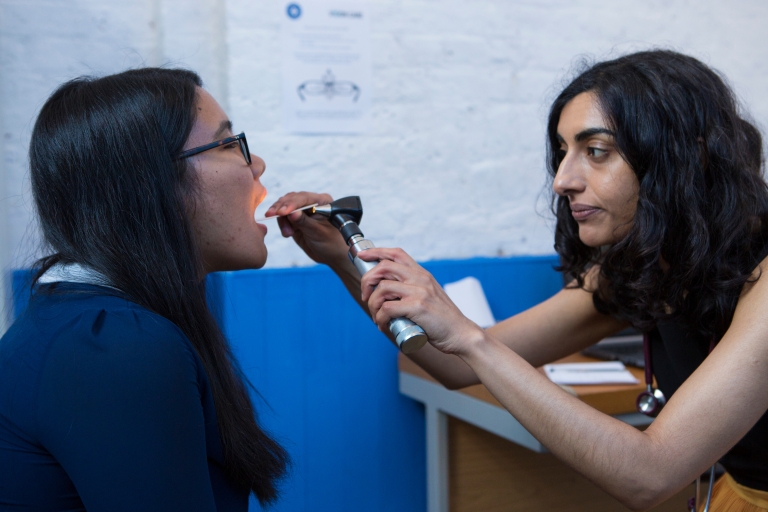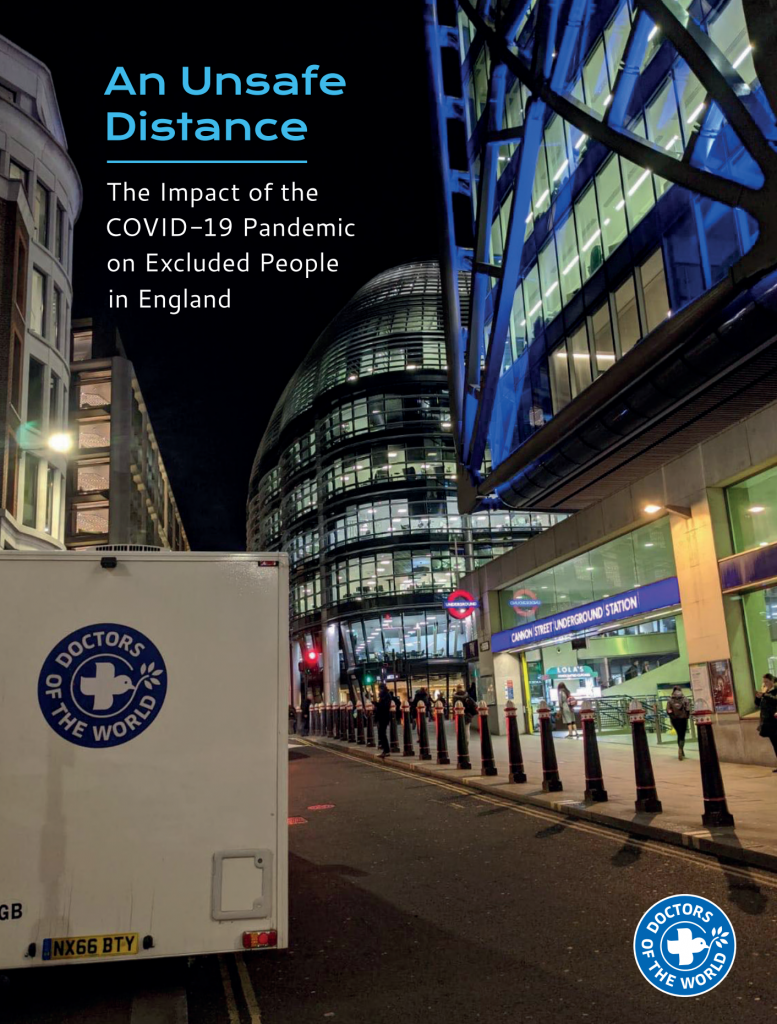Many migrants are struggling to access remote HIV tests – but we can work together to help them
Published 1st December 2020
Mimi Mzari is the HIV Project Lead at Doctors of the World UK. She has been working to improve access to HIV testing and information for migrants and refugees, a group often excluded from healthcare due to the hostile environment.
On World AIDS Day, Mimi reflects on the challenges and opportunities COVID-19 has created for healthcare practitioners, patients and global efforts to eliminate HIV.
Much about the year 2020 has been far from “normal”. Across the world, we have been fighting the Covid-19 pandemic, monitoring symptoms, social distancing, wearing face coverings and surviving lockdowns.
For most of us in the UK with access to healthcare, we know that if we experience symptoms of illness, medical help is available to us through the NHS, but what about those who don’t have good access to healthcare?
As the Doctors of the World UK (DOTW) HIV project lead, my aim is to improve access to HIV testing and information for migrants and refugees, a group often excluded from healthcare due to this and previous governments’ eagerness to create a hostile environment for migrants.

One of the many challenges of my role has been working out how to provide HIV point of care tests (POCT) remotely to people who are trying to navigate a new healthcare system and adapt to a new country and way of life.
Point of care tests provide results within minutes, which is great for patients who don’t have time to wait for long and ideal for professionals like myself to instantly follow up if someone needs further care. Knowing your HIV status early is important because it reduces mortality and prevents further HIV transmission.
Before the pandemic, people were able to walk into our volunteer staffed clinic in east London and receive a health assessment and support to access NHS services such as registering with a GP, dental care and antenatal care.
In that setting, we were able to offer HIV point of care tests to anyone who walked in with results in a matter of minutes. Upon getting their result, we would provide them with sexual health advice and support and link them into further care if needed.

Adapting our services to function remotely in a short space of time has changed how people engage with our services. It has both advantages and disadvantages, on the one hand, it means we do not put service users at risk of Covid-19 and people do not have to travel far to reach our clinic. On the other hand, it means only those who have access to the internet or a phone can contact us for support.
Digital exclusion – something that has become more apparent during the pandemic – at a time when almost everything is online and remote really challenges us as practitioners to get creative in the way we deliver vital healthcare services such as HIV testing.
The way we access healthcare and other services has changed for everyone in the UK, but even more so for migrants, refugees, asylum seekers and sex workers, who are among the most marginalised groups in our communities.
Research carried out by DOTW at the height of the first wave found the shift to remote healthcare services had failed to account for the digital exclusion experienced by people in vulnerable circumstances.
Many do not have the device, credit/data, internet access, or digital literacy required for access. Remote consultations also pose a challenge for people whose first language is not English or who are unable to articulate their symptoms well enough for an accurate medical assessment to be made remotely.
I am the child of a refugee, which means I am all too familiar with some of these challenges. My work at DOTW is driven by my awareness of the complexities of the migrant and refugee experience, and my passion to tackle HIV in compassionate, innovative and inclusive ways.
However, even I have been guilty of underestimating the challenges excluded groups, such as refugees, face and how these affect the way individuals engage with healthcare services, let alone testing a highly stigmatised disease such as HIV.
My time at DOTW has required me to think about how we can deliver a remote HIV testing service during this pandemic. We are rethinking and reflecting on the role language and other factors, such as fear of arrest as a result of immigration status, play in contributing to the poor health and wellbeing of migrants and refugees in the UK.
While we have been implementing our remote HIV testing service, we have been signposting people to NHS services such as Sexual Health for London and Sexual Health 24. They offer a fantastic free service where people can order discreet STI home testing kits and receive their results in a few days.
We have been able to support service users for whom English is a first language to order their kits online to an address of their choosing. But inevitably some people fall through the cracks. The continuous task, therefore, is to come up with innovative ways to reach the people and communities who need our services the most.
This year, the theme for World Aids Day is “Global solidarity, shared responsibility” in pursuit of the 90-90-90 target, which aims for 90 per cent of people living with HIV to know their status, 90 per cent of people diagnosed with HIV to be on treatment, and 90 per cent of people receiving treatment to have an undetectable viral load – meaning they can’t pass the virus onto others.
These targets are possible if all the sectors involved in the fight against HIV work collaboratively to achieve this goal and overcome barriers to healthcare such as digital exclusion.
Covid-19 has presented many challenges, but it has also given us the opportunity to try doing things differently, to be creative and inclusive in the services we provide to ensure we achieve this goal.
About Mimi
Mimi holds a BSc in Anthropology (Brunel University) and a MSc International Development (University of Amsterdam). She has five years’ experience in the HIV and sexual and reproductive health and rights sector, and has worked with a diverse range of service users and partner organisations, both in the UK and internationally, to implement culturally and socially specific testing outreach activities.
This article originally appeared in The Independent.
